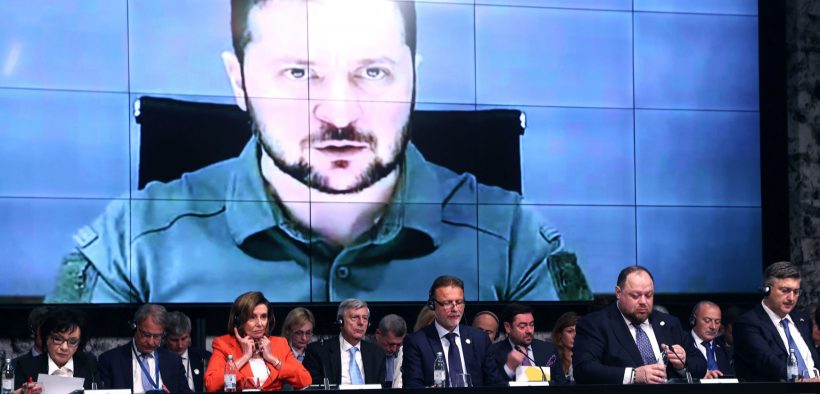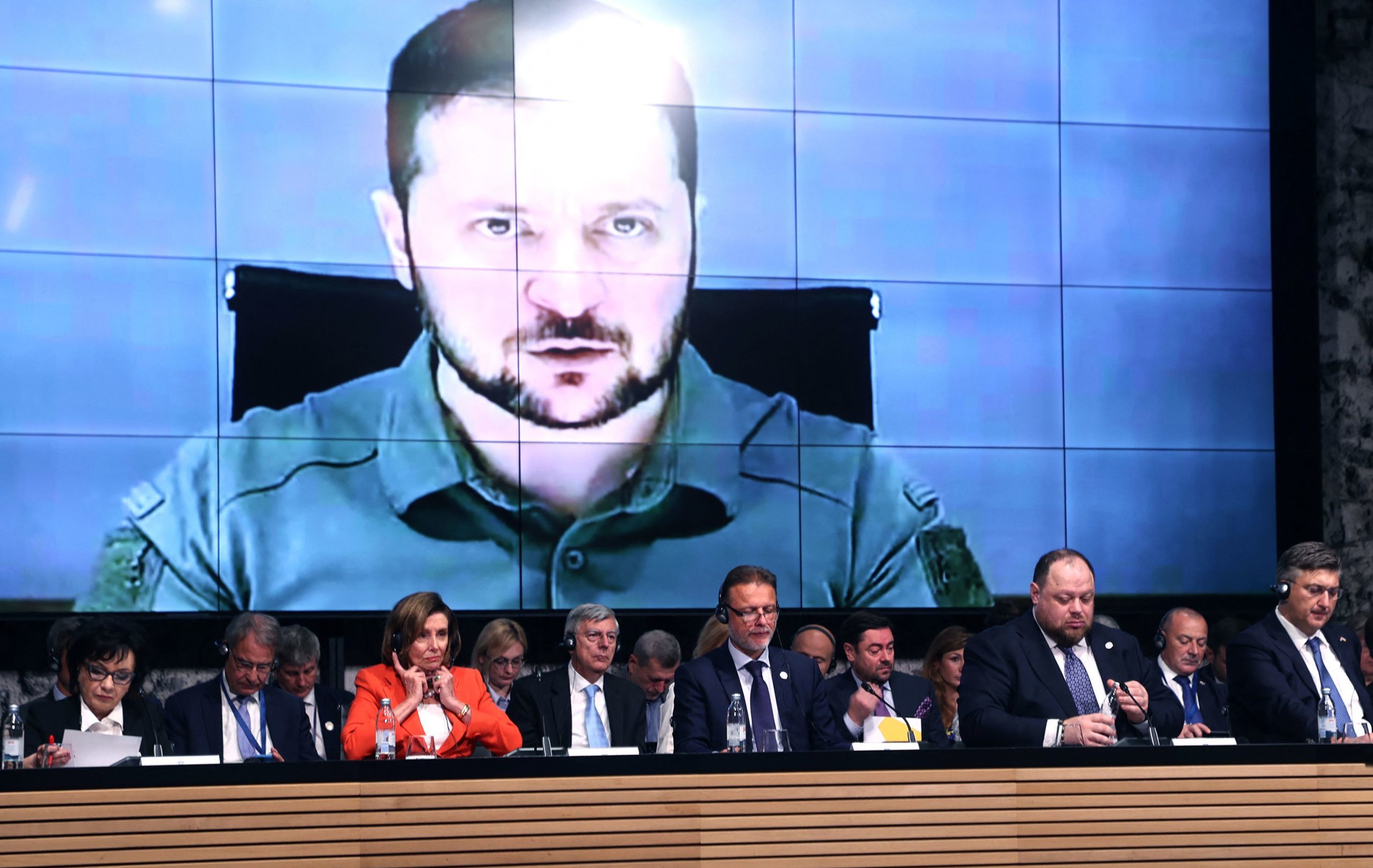A Dangerous Proposal
Share


Just when one is tempted to conclude that Ukraine’s sycophantic backers in the West can’t embrace policies that are more detached from reality, leading figures in that faction manage to plumb new depths of absurdity. The latest example is a May 22 Wall Street Journal op-ed by Bernard-Henri Lévy. He fumes that one of Vladimir Putin’s chief weapons in his war against Ukraine “is Russia’s status as a permanent member of the United Nations Security Council, which entails the power to block any resolution. It’s a legacy of World War II and the decision to reserve this status to the five victors, including the Soviet Union.”
But “the Soviet Union no longer exists,” Lévy emphasizes. Consequently “Russia’s permanent membership and the veto power it confers have no legal basis.” After delineating Russia’s “war crimes” since 1991 (real or exaggerated) while ignoring similar international behavior by the United States and its European allies, Lévy finally comes to the meat of his proposal. “Ukraine can and should inherit the rights of a fallen Russia. Remove the Russian Federation from its seat as a permanent member and transfer it to Ukraine.”
Unfortunately, Lévy is not the only figure to advocate expelling Russia from the Security Council. In October 2022, the Helsinki Commission made a similar proposal. Representatives Steve Cohen (R-TN) and Joe Wilson (R-SC) introduced a congressional resolution in December 2022 endorsing that objective.
Expelling a permanent member of the Security Council from its seat is dubious from a legal standpoint and recklessly provocative from a geopolitical one. The closest legal analogy for removing Russia was the U.N.’s decision in 1971 to transfer China’s Security Council seat from the exiled Kuomintang government of Taiwan to the communist government in Beijing. However, that situation was vastly different from what Lévy and Ukraine’s other advocates are proposing. Beijing effectively ruled all of mainland China, but Ukraine inherited only a small portion of the defunct Soviet Union. Most of the USSR’s territory, the majority of its population, as well as the bulk of its military and economic infrastructure, went to Russia.
From a geopolitical standpoint, expelling Russia from the U.N. Security Council makes even less sense. Supporters of the United Nations habitually overemphasize the organization’s importance. The U.N. is primarily an arena for diplomatic posturing and a dumping ground for annoying issues that the great powers regard as low-priority. The one exception is that the five permanent members on the Security Council routinely use their veto power to shield their own unsavory actions and those of favored allies. Small countries that do not have such protection are fair game for either unilateral or multilateral coercion—including military coercion. Serbia, Iraq, Georgia, and Libya are among the recent, pertinent examples.
Depriving Russia of its Security Council veto would constitute a dangerous escalation of the West’s already alarming confrontation with Moscow. Russian leaders increasingly charge that the United States and its allies are determined to eliminate Russia as a great power—and remove the country as a barrier to their aspirations for global hegemony. Putin and his colleagues portray the Ukraine fight as a NATO proxy war against Russia to achieve those goals.
U.S. officials have given such accusations considerable credibility. Secretary of Defense Lloyd Austin candidly admitted that NATO’s goal in Ukraine was to severely weaken Russia. A gratuitous move regarding Russia’s U.N. Security Council seat would fully confirm Moscow’s suspicions about the West’s motives and objectives. Any hope of a post-Ukraine war rapprochement with Russia would evaporate, and the world would become decidedly more dangerous.
The most preposterous aspect of Lévy’s scheme, though, is his proposal to transfer Russia’s seat to Ukraine. If he had suggested Germany, Japan, India, or Bazil, the idea would at least be relevant to the real world and great power relations. But Ukraine? That country is a second or third-tier power by any measurement.
Subscribe Today
Get weekly emails in your inbox
Its $112 billion economy ranks a meager 60th in the world in terms of annual Gross Domestic Product—just ahead of Morocco and just behind Sudan. No person could suggest adding either of those countries to the U.N. Security Council and expect to be taken seriously. Ukraine’s population of 43.7 million puts it 35th in the world, just ahead of Iraq and just behind Sudan (again). Ukraine is a nondescript, middling power, at best.
Why would anyone propose making such a minor country a permanent member of the U.N. Security Council, and by implication, according it the status of being a major player in the international system? It is another measure of the foreign policy establishment’s intense love affair with Ukraine. People who contend that Volodymyr Zelensky is a champion of democratic liberty and the second coming of Winston Churchill are capable of any fawning measure of devotion to Ukraine.
For those of us in the real world, America’s support for Ukraine is seen as both unprincipled and reckless. Fortunately, the latest proposal to give Russia’s seat on the U.N. Security Council to Ukraine likely will be greeted with the dismissive laughter it deserves, as it was immediately by knowledgeable analysts such as Eunomia’s Daniel Larison. The United States should work to repair relations with Russia, not engage in feckless, needlessly provocative posturing.













